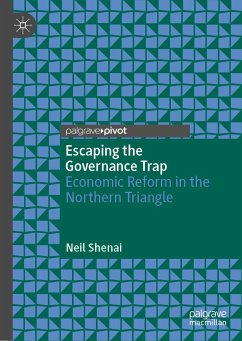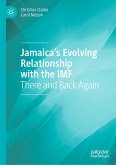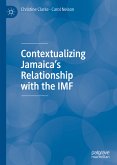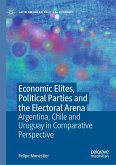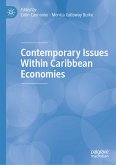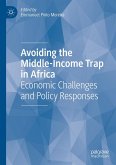Escaping the Governance Trap: Economic Reform in the Northern Triangle provides a framework for understanding the challenges of those three Central American nations, proposing that the lack of governing capacity in each country is a crucial problem. This book argues that economic reforms can help the Northern Triangle countries escape their governance traps and identifies priority areas of economic reform. Sectors covered include fiscal policy, monetary and exchange rate policy, financial access and deterrence, and structural reforms. It also highlights the role that stakeholders like the United States can play to help in these reform efforts, and how those outcomes affect the United States and the global community. All told, Escaping the Governance Trap provides an accessible, direct account of the Northern Triangle's economic challenges and how to fix them.
Neil Shenai served as the U.S. Treasury's Financial Attaché to Mexico and Central America from 2016-2018. He is a Term Member of the Council on Foreign Relations and the author of Social Finance: Shadow Banking during the Global Financial Crisis (Palgrave MacMillan, 2018). He received his PhD from Johns Hopkins University School of Advanced International Studies.
Dieser Download kann aus rechtlichen Gründen nur mit Rechnungsadresse in A, B, BG, CY, CZ, D, DK, EW, E, FIN, F, GR, HR, H, IRL, I, LT, L, LR, M, NL, PL, P, R, S, SLO, SK ausgeliefert werden.
"This book is recommended to academic audiences and policymakers, especially those engaged in economic development and governance issues." (Scott B. MacDonald, Global Americans, theglobalamericans.org, February 7, 2023)
"Shenai, a former U.S. Treasury Department official responsible for Central America, has written a thoughtful study of the vexing problems plaguing the countries of the Northern Triangle ... ." (Richard Feinberg, Foreign Affairs, November-December, 2022)
"Escaping the Governance Trap Economic Reform in the Northern Triangle is a provocative text, exceptionally written by Neil Shenai. This study is a major contribution to the debate about what is going on in the Northern Triangle. ... This perspective distinguishes the work as a book both for scholars and practitioners. Shenai fills a key gap in the literature by providing an economic-reform agenda for Central America that multiple political stakeholders should discuss." (Nahuel Oddone, Latin American Policy, October 13, 2022)
"For readers interested in the Northern Triangle, Escaping the Governance Trap should be a clarion call to explore new approaches to breaking free from the vicious cycles of poor governance typically associated with populism and patronage. Policymakers in the United States, the Northern Triangle, and throughout the Latin American subcontinent should heed this call and benefit from the analysis and recommendations detailed in this ground-breaking book." (David F. Varela, The SAIS Review of International Affairs, September 1, 2022)

